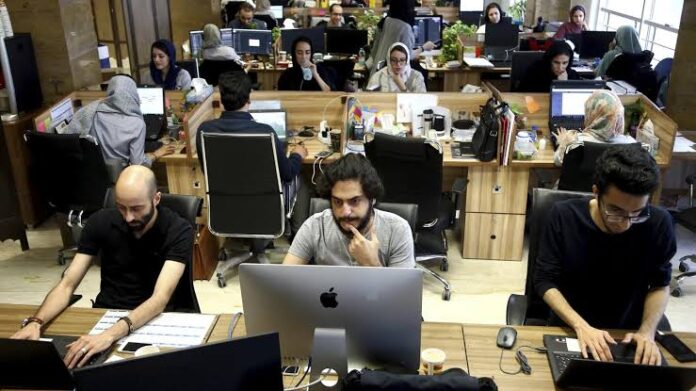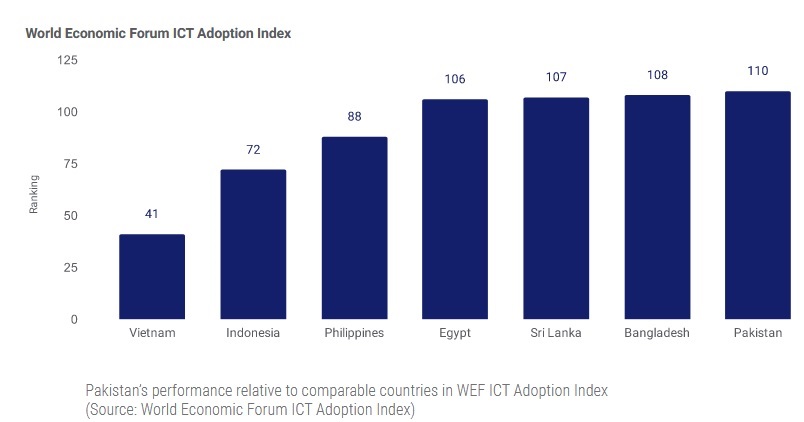According to Pakistan Startup Ecosystem Report 2021 prepared by invest2innovate, much more needs to be done to improve the regulatory environment, especially in relation to the taxation regime, given that investors still perceive this environment, particularly as it relates to the flow of money, to be onerous when compared to more friendly ecosystems like Singapore and Indonesia.

Lack of laws allowing for the seamless inflow of foreign investment capital into the country, as well as the lack of appropriate venture capital friendly legislation and processes, both pose considerable barriers to local and international investors alike.
“Increasing valuations and investment round sizes over the past two years signal that Pakistan is becoming an attractive market for international investors, but there are still concerns around future exit opportunities – where they’ll come from and also when they will materialize,” Report noted.
Despite the global COVID-19 pandemic, investments raised by startups in Pakistan hit an all-time high at $350 million, more than five times the $65 million raised in 2020.

Kalsoom Lakhani founder i2i Ventures, said startups raising $350 million in funding in 2021 was the culmination of a number of factors that all converged at the same time; from policy level changes by the State Bank of Pakistan (SBP) and the Securities and Exchange Commission of Pakistan (SECP) that were pushed for by private sector players, to the pandemic that accelerated digitization, to macroeconomic considerations that caused international funds to look to newer emerging markets for outsized returns.
“While this growth is exciting, we need to also work to build the capacity of our local startup ecosystem and all its players if we want to see sustainable and long-lasting change. If the hype dies tomorrow, the Pakistan startup space needs to be able to support this growth on its own.”
With almost 64 per cent of the country’s population under the age of 30, Pakistan’s and its present youth bulge can help to catalyze digital adoption and, subsequently, economic growth.
Several key factors have recently helped to accelerate the growth of local startups. For instance, the number of cellular connections have increased from 168 million in 2019-20 to 184 million by the end of 2020-21.
Additionally, 14 million new broadband connections were logged during 2021, underscoring the gradual shift among the population toward digitalization.
In the commercial space, the number of new businesses has risen to over 12,500 as of June 2021 with the IT and ITes sectors now accounting for 16 per cent of all newly incorporated companies.

Aatif Awan, Founder Indus Valley Capital, said the rise of Pakistani startups had been exponential. “VC funding in Pakistan as a percentage of GDP grew 10x faster than the MENA startup ecosystem over the last 3 years and is now at parity”.
“Indus Valley Capital has been fortunate to have a front-row seat to this rise. We led the first rounds for Airlift and Bazaar, the top two most valuable startups based out of Pakistan. Together, they have raised a third of all VC funding in Pakistan over the last couple of years.”
Currently, there are a total of 98 entrepreneurship support organizations (ESOs) operating in Pakistan, which include 22 incubation centers, 13 accelerator programs and 18 co-working spaces.
As many as 24 university-based business incubation centers and other organizations including foundations, business associations, and conferences/challenges also form part of the business support provider community for startups locally.
Government, through its continued support of the National Incubation Centers (NICs), has also contributed to the need for accessible support services by gradually expanding its network of incubators from 2020-21 and afterward.
Anushay Jamal, Venture Capital Analyst at HBL VC Fund, said Pakistani market, with a vast majority of heterogeneous groups within its 200 million population, presented a huge opportunity for Neobanks concentrated on serving underserved segments, to thrive.
“Additionally, it was the objective of these tech-companies to provide embedded banking services that drove the Fund to invest into a non-financial digital platform like Healthwire.”
“In terms of the focus areas for investment, the HBL VC Fund continues to remain fairly sector agnostic while looking at opportunities within the various fintech verticals like BNPL, Neobanks, Digital Trading, Agritech/Supply Chain Digitization Platforms, Edtech, Logistics, and E-Commerce.
This has helped the fund in shaping it’s investment criteria and allowing it to enter at pre-seed or seed stage of funding, in lieu of rising valuations within the space following investments from foreign VCs like Tiger Global”.
The Report suggests government can also play a more proactive role in activating the local angel investment landscape. Developed markets with a healthy angel ecosystem have often relied on tax credits to subsidize early-stage investors by providing personal income tax credits equal to a given percentage of their investment irrespective of the investment outcome.
A similar system of incentives would serve to promote angel investments on a wider scale as well as create more networks of angel investors who could serve as a viable alternative source for funding early-stage rounds.
Similarly, the government can identify a number of strategic industries and incentivise private players to actively look for opportunities in those areas.
For example, India recently unveiled a $10 billion semiconductor policy to attract investors by offering incentives like concessional financing in order to build an indigenous semiconductor industry.
The government should also strive to reduce the regulatory hurdles in the rules governing mergers and acquisitions, especially those involving a foreign party.
The existing policy framework in Pakistan discourages international investors from investing in entities solely registered in Pakistan due to the extensive oversight requirements and cumbersome regulations involved while the present Private Fund Regulations make it difficult for local investors to license fund vehicles.

A clear policy direction must be set with respect to outflow of capital when exits start to happen as uncertainty about capital controls often discourages international investors from vesting further.
The Report suggests government can also facilitate investors by creating a one-window operation for them, akin to the FBR’s Web-based One Customs (WeBOC) platform, where they deal with all legal filings such as structuring, approvals, exemptions, tax filing, registration of foreign directors, repatriation of dividends, interests and capital gains, etc.
Addressing these challenges will strengthen the foundation for future growth, ensuring that startups in this country are set up to succeed, which is necessary for economic growth overall.
